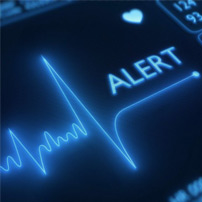Report Finds Over ½ of Workers Aren’t First Aid or CPR Trained
July 29, 2017 The report took into account more than 3,000 workers across different industries. Although less than ½ of the workers were CPR or first aid trained, 90% of them said that if their employers offered training that they would voluntarily participate. And, even though most workers didn’t know first aid training themselves, at least 73% of them believed that their coworkers would know how to provide basic first aid if a situation called for it. 68% of employees believed that their coworkers could administer CPR to them, and 66% thought that their coworkers would know how to use an AED.
The report took into account more than 3,000 workers across different industries. Although less than ½ of the workers were CPR or first aid trained, 90% of them said that if their employers offered training that they would voluntarily participate. And, even though most workers didn’t know first aid training themselves, at least 73% of them believed that their coworkers would know how to provide basic first aid if a situation called for it. 68% of employees believed that their coworkers could administer CPR to them, and 66% thought that their coworkers would know how to use an AED.
The report from the AHA coupled with people’s responses to what they expect their coworkers to be able to do in the case of a medical emergency shows a serious discrepancy between people’s expectations and the reality. Although most people believe that their coworkers could help them, the statistics say otherwise.
If someone is having a heart attack and they are unconscious, it is vitally important to administer CPR. If someone has a heart attack at their workplace and their coworkers have already called 9-1-1 it is beneficial for those coworkers to be able to offer as much basic medical help as possible. Employers can sign up for first aid and CPR training safety courses, which are compliant with the Occupational Safety and Health Administration’s (OSHA) safety training guidelines.
Safety courses that teach the basics for medical emergencies such as scene assessment, appropriate responses to basicand traumatic injuries, responding to an emergency, patient assessment and movement and other medical issues can end up making the difference between life and death for someone who is having a catastrophic medical event in the workplace.
According to the Mayo Clinic, when someone is having a heart attack there are five basic steps to follow. People who have received CPR and first aid training would learn the following important tips:
- Call 9-1-1. Unless a doctor has told you to never take aspirin or you are allergic to it, you can
- Chew or swallow one aspirin, unless a doctor has told you never to take aspirin or you are allergic to aspirin. (*It is important to note that as with all other medical advice, you should consult directly with your healthcare professional).
- Take nitroglycerin if your doctor has prescribed it. If you do not have any, do not take anyone else’s.
- Administer CPR if the person having a heart attack is unconscious, and:
- Attach the AED device and follow the instructions that it provides after it has evaluated the person’s condition.
AEDs or automated external defibrillators check the heart’s rhythm and are able to send an electrical shock to return the heart to a normal rhythm if it is not in one. AEDs can also help a person’s heart start beating again. In the case of a medical emergency, AEDs and CPR can both be lifesaving devices.
CPR and basic first aid training, which includes teaching workers how to find and use AEDs, should be mandated in workplaces across the country. Not only do 10,000 heart attacks happen at work, the U.S. Bureau of Labor Statistics (BLS) reports that all in all there are nearly 3 million nonfatal workplace injuries and illnesses each year. CPR and first aid training could act as the first line of defense against a medical event or injury that occurs.
Philadelphia Workers’ Compensation Lawyers at Galfand Berger, LLP Helping Injured Victims Since 1947
If you or a loved one has been injured in the workplace, our Philadelphia Workers’ Compensation lawyers are happy to answer your questions and review your case for free. Galfand Berger’s offices are located in Philadelphia, Bethlehem, Reading and Lancaster, we serve clients throughout Pennsylvania and New Jersey. To schedule a consultation, call us at 800-222-8792 or complete our online contact form.
 Google Screened
Google Screened
